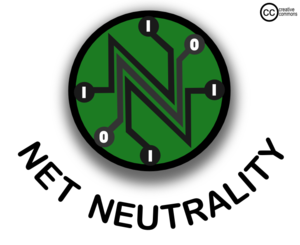 Since the Open Internet Rules went into effect in mid-June the public complaint department at the Federal Communications Commission (FCC) has been inundated with complaints about the ways ISPs treat the customers. The majority of these complaints have absolutely nothing to with the regulations and rules that are covered under the net neutrality conversation. However, there was a complaint filed in June against Time Warner Cable (TWC) by San Diego-based company, Commercial Network Services (CNS).
Since the Open Internet Rules went into effect in mid-June the public complaint department at the Federal Communications Commission (FCC) has been inundated with complaints about the ways ISPs treat the customers. The majority of these complaints have absolutely nothing to with the regulations and rules that are covered under the net neutrality conversation. However, there was a complaint filed in June against Time Warner Cable (TWC) by San Diego-based company, Commercial Network Services (CNS).
In the claim filed by CNS, they state that TWC is “violating the ‘No Paid Prioritization’ and ‘No Throttling’ sections of the new net neutrality rules,” specifying that the violation is occurring because TWC is using “higher latency (and often more congested) transit routes,” instead of directly routing to the edge provider over “lower latency peering routes freely available to them through their presence on public Internet exchanges, unless a payment is made to TWC by the edge provider.” Essentially, CNS is stating that TWC is violating the Open Internet Rules because they aren’t treating the data from origin to end point fairly.
For a little background, CNS is the provider of a popular webcam that allows users to log into SunDiegoLive.com and see views of San Diego. The interesting part about this kind of service is that based on the treatment of data anyone that is not a TWC customer has no issue viewing the webcam feed. So if you’re longing for a California sunset anywhere in the world you can freely log in, except if you could likely walk outside your house and view the same sunset and use TWC as your ISP.
If this is a clear cut case where the ISP is violating the net neutrality arrangement by telling the edge service provider, CNS, that they have to pay for the cost to improve customer’s access to this service, why is it that the FCC has chosen not to pursue this case? Simply put, according to the Open Internet Rules what TWC is doing is not a violation of the rules as they are currently stated.
If TWC were to be throttling, blocking, or forcing CNS to pay more as it crosses their network then that would be a direct violation of the rules as they are written, but what TWC has done is exploit the fact that interconnection, or peering, (the passage of data from one ISP to connecting networks) is excluded from that same protection.
The section of the rules that CNS is attempting to apply is in paragraph 21 of the Open Internet Rules,
“The bright-line bans on blocking, throttling, and paid prioritization will go a long way to preserve the virtuous cycle…Thus, the Order adopts the following standard: Any person engaged in the provision of broadband Internet access service, insofar as such person is so engaged, shall not unreasonably interfere with or unreasonably disadvantage (i) end user’s ability to select, access, and use broadband Internet access service or the lawful Internet content, applications, services, or devices of their choice, or (ii) edge providers’ ability to make lawful content, applications, service or devices available to end users.”
Shortly after that is declared in the rules, the FCC proceeds to pull back on the strength of that declaration when in paragraph 28 it states, “But this order does not apply the open Internet rules to interconnection.”
If the rules were designed to protect all content from end point to end point, why would the interconnectivity between networks be excluded in these rules? The FCC provides three reasons as to why interconnections are excluded. First, the expanded use of CDNs or direct connections between content providers and broadband providers has changed the way these interconnections happen. Second, “that consumers have been subject to degradation resulting from commercial disagreements.” Third, that the causes of previous disruptions in consumer connectivity and the potential for future issues offer highly conflicted narratives preventing the FCC from making a decision as to how to regulate this transfer point in network connectivity.
While the FCC expresses an understanding of last-mile practices (connectivity to the home/business from the ISP), they openly confess in the rules that their understanding of interconnection practices is lacking to make an educated decision and they will therefore need to “watch, learn, and act as required, but not intervene now, especially not with prescriptive rules.” Again, this raises the question that if this was the first opportunity for them to watch and learn about interconnecting networks, why wouldn’t they take advantage of the opportunity?
 What is clear about this story, as first introduced from the Washington Post here and then following up here, is the fact that the FCC has left another massive loophole in the rules as they currently exist. As Brian Fung reports, “the net neutrality rules don’t explicitly prohibit companies from negotiating private carriage agreements for so-called ‘interconnection.’ They merely give the FCC the ability to probe deals that it finds suspicious and potentially anticompetitive.” The FCC didn’t just completely ignore the claim that was filed by CNS, they did attempt an unpublicized resolution to the matter but it did not meet the requests of CNS.
What is clear about this story, as first introduced from the Washington Post here and then following up here, is the fact that the FCC has left another massive loophole in the rules as they currently exist. As Brian Fung reports, “the net neutrality rules don’t explicitly prohibit companies from negotiating private carriage agreements for so-called ‘interconnection.’ They merely give the FCC the ability to probe deals that it finds suspicious and potentially anticompetitive.” The FCC didn’t just completely ignore the claim that was filed by CNS, they did attempt an unpublicized resolution to the matter but it did not meet the requests of CNS.
This is just the first in what will likely be a long series of filings that will be watched by the FCC and will hopefully educate them accordingly, but how long until they reach a point where they are willing to make a decision and alter the rules? If the interconnection aspect of the rules was designed with the intent of being monitored so that the rules could change as though it were a living document, as has been suggested by the FCC and the document itself, how many instances will have to be filed and explored before the understanding is clear? What, exactly, will be the determining factor for the FCC to make the decision that peering costs would be considered anticompetitive?
With the release of the Open Internet Rules each of the Commissioners also released a statement. A line from FCC Chairman Wheeler’s is the most interesting as we look at this recent decision: “Today’s Order also asserts jurisdiction over interconnection. The core principle is the Internet must remain open. We will protect this on the last mile and at the point of interconnection.” Apparently that protection will be there once the FCC figures out exactly how interconnectivity works. Let’s hope that they get educated quickly.



Pingback: Net Neutrality Posts | Sound ReasonSound Reason